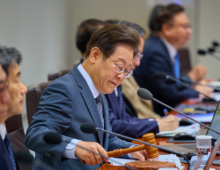Law gives physician assistant nurses more responsibilities, but gaps in training and legal clarity worry experts
South Korea’s National Assembly passed the Nursing Act last Wednesday, set to take effect as early as June 2025. This new law aims to clarify the roles and legal status of Physician Assistant (PA) nurses in response to their growing responsibilities within the healthcare system.
While the Act is intended to improve patient care by providing a legal framework for PA nurses, it has also raised concerns among healthcare professionals about potential risks to patient safety. These concerns stem from the lack of standardized education for PA nurses and the ambiguity surrounding their scope of practice.
South Korea’s National Assembly passed the Nursing Act last Wednesday, set to take effect as early as June 2025. This new law aims to clarify the roles and legal status of Physician Assistant (PA) nurses in response to their growing responsibilities within the healthcare system.
While the Act is intended to improve patient care by providing a legal framework for PA nurses, it has also raised concerns among healthcare professionals about potential risks to patient safety. These concerns stem from the lack of standardized education for PA nurses and the ambiguity surrounding their scope of practice.
Get your
KoreaPro
subscription today!
Unlock article access by becoming a KOREA PRO member today!
Unlock your access
to all our features.
Standard Annual plan includes:
-
Receive full archive access, full suite of newsletter products
-
Month in Review via email and the KOREA PRO website
-
Exclusive invites and priority access to member events
-
One year of access to NK News and NK News podcast
There are three plans available:
Lite, Standard and
Premium.
Explore which would be
the best one for you.
Explore membership options
© Korea Risk Group. All rights reserved.
No part of this content may be reproduced, distributed, or used for
commercial purposes without prior written permission from Korea Risk
Group.












